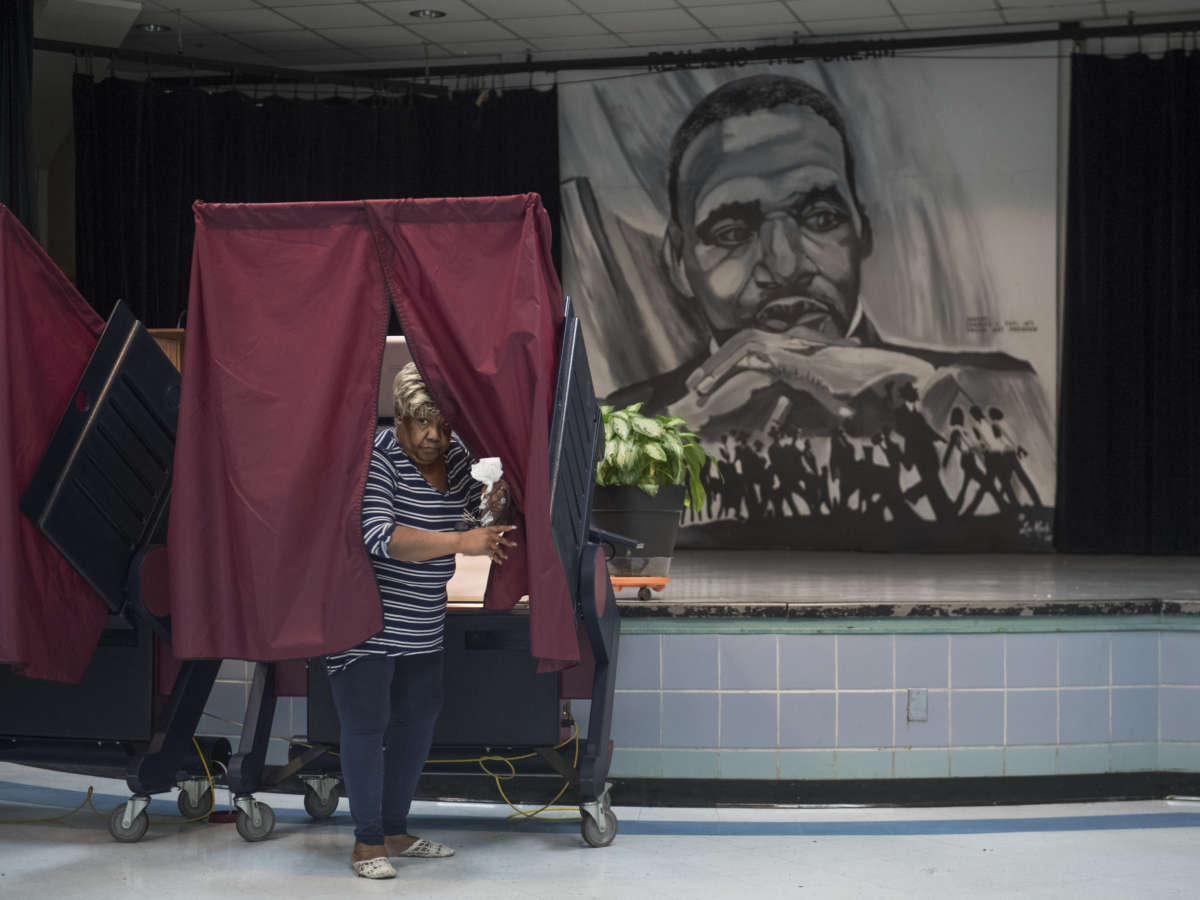

It can seem like all hope is lost, with record inflation, attacks on reproductive rights, and unfair redistricting. Many voters aren’t giving in.
My state of Louisiana has faced many challenges, especially when it comes to the electoral process. In the past, we have seen literacy testing, brutal attacks on voters who want to register to vote and the elimination of voting locations. We also saw the changing of polling places without notification and other attempts to restrict or limit the right to vote. We have seen voter suppression in all its forms, even its latest and more sinister form, racial or partisan gerrymandering.
2022 saw an unfair drawing of congressional district lines by the Louisiana state legislature. Voters, including those reached through my organization, the Power Coalition for Equity and Justice, testified throughout this year’s redistricting process, which saw unprecedented, historic citizen participation. This fight was then pivot to asking Gov. John Bel Edwards to veto the maps. He did so, and then his veto was overruled by the legislature. We took our case to the Middle District Court and won initially. Unfortunately, the Supreme Court overturned a lower court’s ruling and temporarily halted the drawing of a second minority-majority district until the high court rules in Alabama’s redistricting caseOctober (A minority-majority district is one where the majority constituents are racial and ethnic minorities. While we currently have one district with a minority majority, the Black population growth is warranted for a second district with a minority-majority. As our legal counsel has noted, the current congressional district “severely dilutes Black voting power by packing Black voters from New Orleans and Baton Rouge into a single U.S. congressional district.” We have been temporarily delayed in the fight for fair maps — but not permanently denied.
Multiple attempts have been made to silence the voices and concerns of the minority growing majority. At every turn, and before every election, a new tactic has been introduced to abridge some voters’ ability to participate in our nation’s democracy. Democracy Docket summarized research detailing over 100 years of voter suppression in Louisiana — from restricting who could register, closing polling sites, limiting when people could vote, permitting felony disenfranchisement, the efforts to curtail access to the ballot in Louisiana have been ongoing. These barriers, as obstructive as they may be, do not change our drive, passion, and hunger for pro democracy action.
We have been delayed, but we will not be stopped. In fact, more 250 Black Louisiana voters turned out at the state capitol to participate in the redistricting special sessions on February 1st-2nd. They filled the state capital and demonstrated that our community is engaged and concerned. Many voters attended, even though the second district was not in their state.
Absence of a second congressional District is detrimental to all Blacks. A second person to vote in their interest on key issues would be crucial. A second congressional district would allow Baton Rouge and the Delta churches to have a voice. This is important for many reasons, including the fact Poverty Point (in Delta) is the most impoverished area in the country and is 80 percent Black. They have experienced a failure to thrive because they’ve not been a priority. Given the current district structure, it seems like this region is an afterthought. All Black people know that having multiple African American representatives in Congress would strengthen democracy. It would also make it more likely that legislation that is important to Black voters, like the John Lewis Voting Rights Bill could be passed.
Although we have experienced setbacks in our efforts for a second minority-majority chair, there is still hope. We have not accepted defeat. We must refuse to believe in victory. We must refuse to fight for our future. This is what defeat looks like in many communities across the country. We believe that something better is possible.
This year has been tough, but we cannot lose sight of the progress we’ve made and the possibilities for our future. My organization has been focusing on infrastructure building since 2015. We have had many successes in this endeavor, including:
- Assisting naturalized citizens to vote in Louisiana like all other voters;
- Reenfranchising formerly incarcerated persons with our anchor partner VOTE as well as a ballot measure ending racist practice of convicting people by non-unanimous jury;
- Expanding Medicaid, which provides health care for more than 350,000 Louisianians;
- The country has been expanding voting rights over the past two years, while the rest of the country was moving in the opposite direction.
But there are other wins which may not seem “sexy” but are incredibly important. Through our advocacy work, we built trust and created space for deep listening to directly impacted people. We also built momentum that will help us in the future.
It is impossible to overstate that progress doesn’t happen overnight; it is a gradual process. We are working right now to prepare Black voters in the 5th District to elect their candidate of choice because this fight isn’t just about this year, but about the next 10 years. We do not need to lose our heads as we approach the 2022 midterm election. Freedom is a long and difficult game. It is also a constant battle. We will never reach the point where we can switch to cruise control. That is not what our ancestors fought for — this moment requires no less than to hold the line on what they fought for and to continue to position future generations for success.
